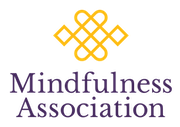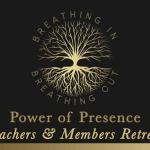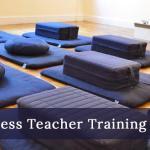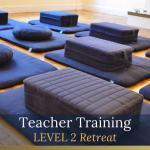A Mindfulness retreat is a span of a set number of days of dedicated practice. Our retreats provide guided practices with an experienced tutor and a structure. Some are suitable for beginners with no experience and others are best suited to those who already have a regular mindfulness or meditation practice.
Some of the retreats might have a theme, such as being in nature, compassion or learning something to include in our practice. Others form a structured course such as the Mindfulness to Buddhism retreat and the Wisdom retreat. There are also 5 day retreats for the Mindfulness Teacher Training. Our members weekend retreats are free to members. No previous experience is needed for this retreat and if you wish, you can make this a 5 day retreat for £125. Every year we run a Mindfulness for Life Retreat which is suitable for those who are familiar with our courses and have an established mindfulness meditation practice. Every other year we run a conference at Samye Ling, Tibetan Buddhist Centre in Dumfriesshire, Scotland. This is run in a retreat like setting with mindfulness teachings and workshops.
Most of our retreats include periods of silence which are required for Mindfulness Teachers as part of their registration with the British Association of Mindfulness Based Approaches (BAMBA).







